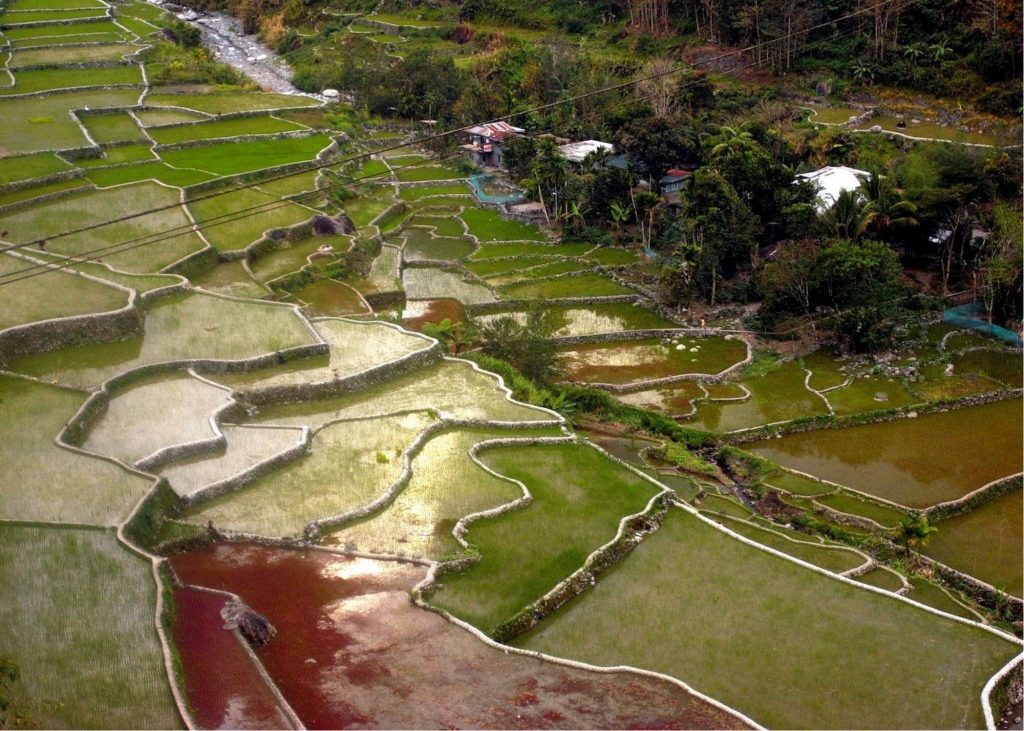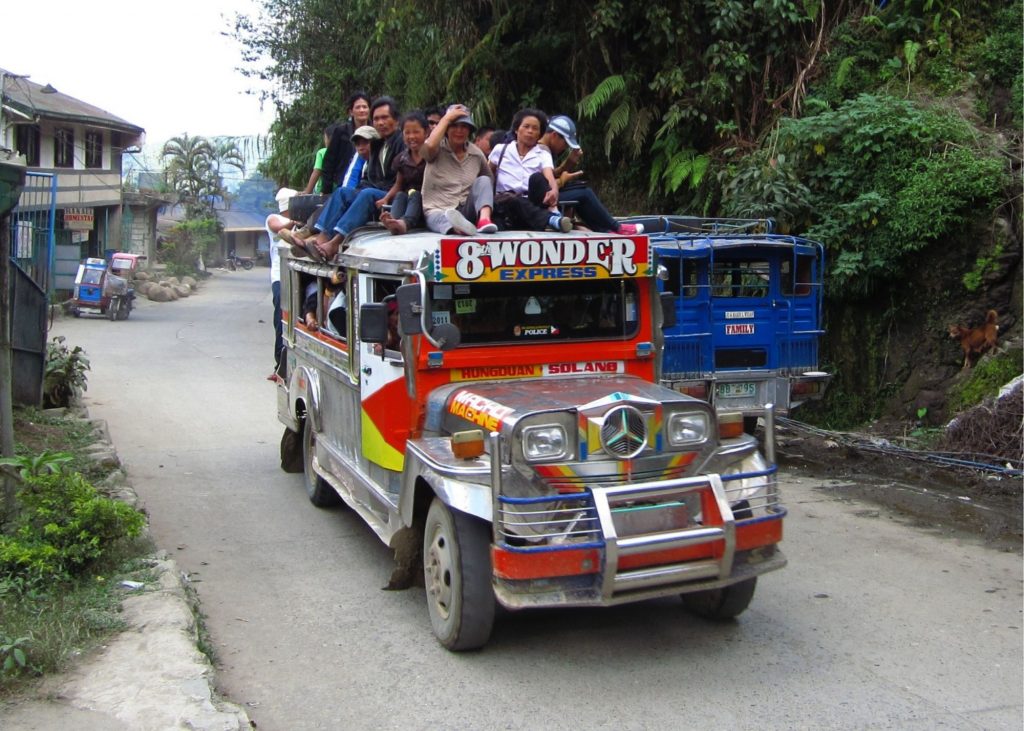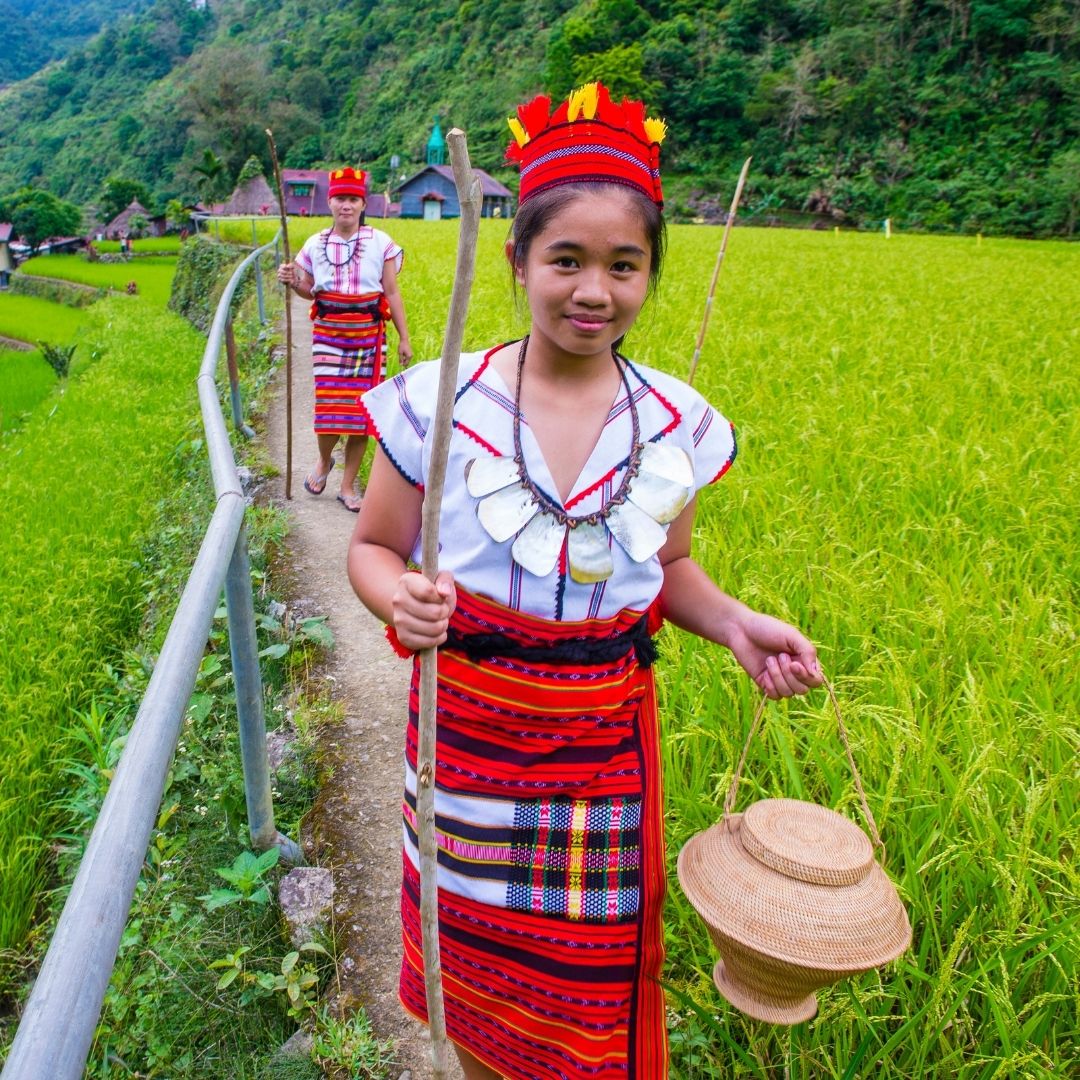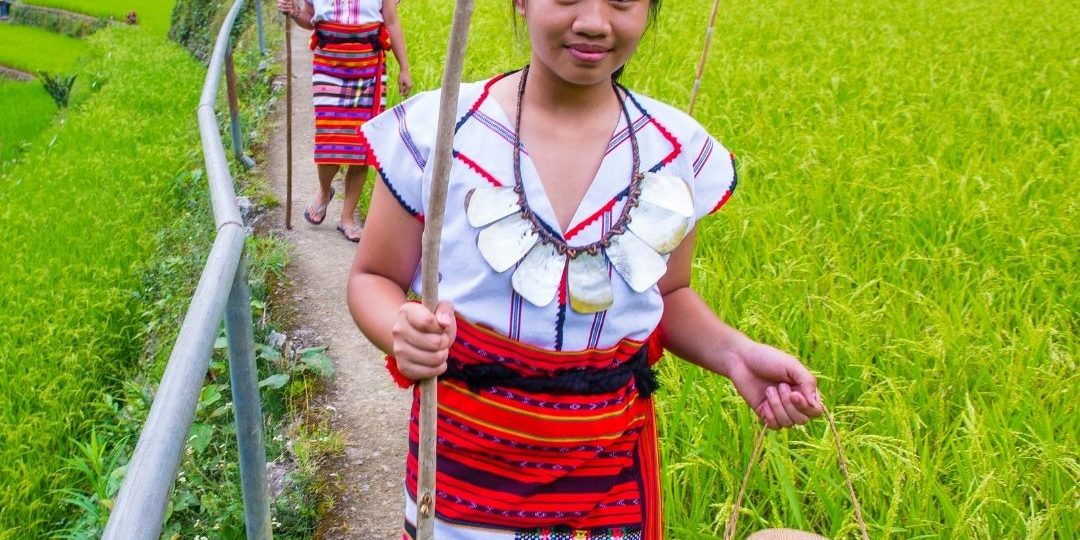Hiking the Banaue rice terraces in the Philippines
One morning I took a jeepney to Banaue. The town center was already crowded with buses leaving for Baguio and Manila and backpackers wandering among the curio shops that sold woodcarvings and monkey-skull headgear. I was fortunate to get in with a local named Manuel since he knew the area well, could give me insight into Ifugao customs and take me to places that few travelers managed to see.
We started out on a hike along the Banaue rice terraces. Along the path we took to Batad, we met sinewy men and women carrying heavy sacks of rice on their bent backs and young men carrying steel pipes for a safe water-project. The toll this kind of labor had taken showed in the drawn old faces of hunchbacked women walking painfully, their torsos bent nearly horizontal to the ground.
That night, Manuel and I slept in a native hut on straw mats and used our bundled sweatshirts for pillows. I was just dozing off when I felt a crawling sensation on my skin. At first I thought I had imagined it, till I felt little bites on my legs. Throughout the night, fleas nibbled on all the exposed parts of my body, each time I began dozing off. Sometime before daylight I trailed off to sleep.
When the sun came up, I was woken by the crowing of roosters and the sound of a woman pounding rice under the hut. Shuddering in the cold dawn, I went back to huddle under the blanket before putting on my wrinkled sweatshirt and walking down the ladder to breakfast. One of the shoes I’d left at the foot of the ladder lay in the mud, and the other was still being gnawed on by a large pig.
We were served a good breakfast of rice, eggs and tinned corned beef, gathered our backpacks, and after I had retrieved my mangled shoes, we thanked our host and geared up for the hike. Following a group of Ifugao men hauling bags of cement to the waterfall to build a damn, we came to a stone bridge that had been flooded out by heavy rains. We waded through waist-deep water, the force of the current making us weave and bob like drunken men and climbed out to a path on the other side. It led to a clearing encircled by trees, standing like sentinels, guarding the secrets of the forest. Endless rows of Ifugao terraces came into view.

A thin veil of mist meandered along the edge of the terraces, in and out of the sea of trees beyond, and flowed across a winding road to the distant mountain. When we reached that road, we caught a jeepney packed with people. Those relegated to the roof were sitting on sacks of rice, with bags of vegetables, baskets of chickens or beside squealing pigs tied to the baggage rack. I climbed to the roof for a better view and sat on the spare tire.

I felt it would be safer to sit there and be flung out in the event of an accident than to be trapped inside a packed jeepney hurtling down a mountainside. When it started getting dark I got down into the back of the jeepney.
In the cold of dawn we arrived at Hungduan. As people exited the jeepney, they took their body warmth with them and stirred us from our sleep. The gnawing cold quickly chilled the sweat on my forehead. We sleepwalked up the hill to a house that blended into the mist-draped vista of endless rice terraces. A commotion of farm animals surrounded the house. Amid the clucking and squealing conversations between chickens and pigs, an enormous sow with mud and mucous oozing from her nose was nibbling lethargically on the wooden bars of her pen. The chickens pecked at anything resembling a morsel of grain beside a dog lying in the cool shade of the hen house. He had heartbreaking eyes, his fur was manged, and ticks and fleas climbed the mountains of his heaving ribs.
In the afternoon we went to the funeral involving the entire barangay. The relatives provided food and drinks for the duration of the mourning period which stretched out for several days. The woman who had died was ninety-years-old and owned most of the rice terraces surrounding the village. She had been the eldest child in her family and by Ifugao custom had inherited the largest rice fields. Because she had outlived her childless siblings, her only son would inherit all the family land
Later that evening, the old men organized high stakes gambling under the hut where 500 peso bills quickly changed hands over a card game. As the younger men consumed large amounts of gin, the dresser behind the coffin would be covered with empty Ginebra bottles by the end of the funeral. A group of old women gathered around speaking in a tongue that would surely die with them. Pans and tin cans were banged throughout the evening as a vigil for the departed. Young Ifugaos gathered around the coffin, singing hymns in sweet lullaby voices.
In a few days the body would be buried with Christian rites and a year later, the bones exhumed and wrapped in a traditional cloth of red and black and stored in an honorary place under the house.







